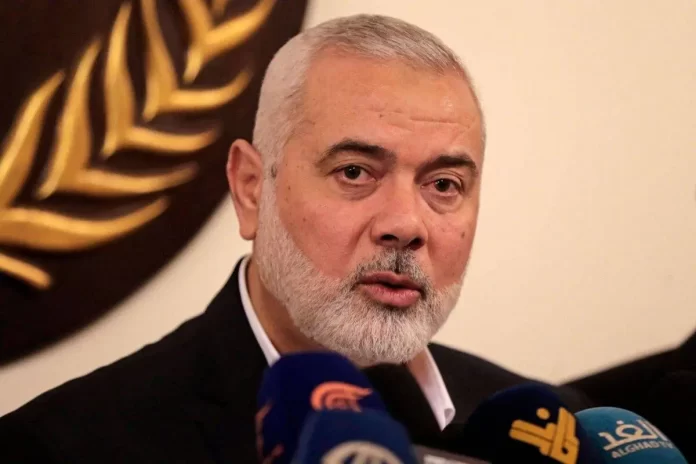29 February 2024
Hamas called, on Wednesday, for Palestinians to march to Jerusalem’s Al-Aqsa Mosque at the start of Ramadan, raising the stakes in ongoing negotiations for a truce in Gaza, which US President, Joe Biden, hopes will be in place by then, Reuters reports.
The call by Hamas leader, Ismail Haniyeh, followed comments by Biden that an agreement could be reached between Israel and Hamas as soon as next week for a ceasefire during the Muslim fasting month, expected to start this year on March 10.
Israel and Hamas, which both have delegations in Qatar this week hammering out details of a potential 40-day truce, have said there is still a big gulf between them, and the Qatari mediators say there is no breakthrough yet.
Al-Aqsa in Jerusalem’s old city, one of the world’s holiest sites for Muslims and the most sacred for Jews, has long been a flashpoint for potential violence, particularly during religious holidays.
With war raging in Gaza, Israel has said it may set limits to worship at Al-Aqsa during Ramadan, according to its security needs. Many Palestinians reject any such restrictions on their access to the site.
“This is a call on our people in Jerusalem and the West Bank to march to Al-Aqsa since the first day of Ramadan,” said Haniyeh.
Israeli government spokesperson, Tal Heirich, described Haniyeh’s remarks as “very unfortunate” and accused him of “trying to drag us to wars on other fronts”.
“We certainly don’t want that. We certainly will do whatever it takes to keep the calm,” she said.
Israeli Defence Minister, Yoav Gallant, said Hamas’s aim was to take pressure off its fighters in Gaza by forcing Israel to shift security resources to Jerusalem and the West Bank.
“We mustn’t give them that. On the one hand, we are operating against terrorist elements and, on the other hand, it is our obligation to allow freedom of worship, and I think we will reach the right arrangements that would allow that.”
Hamas, which precipitated the war in Gaza by attacking Israel on 7 October, killing 1,200 people and capturing 253 hostages according to Israeli tallies, has said it will not free all its captives without a comprehensive deal to end the war.
However, since then, it has been revealed by Haaretz that helicopters and tanks of the Israeli army had, in fact, killed many of the 1,139 soldiers and civilians claimed by Israel to have been killed by the Palestinian Resistance.
Israel, which has assaulted the Gaza Strip, killing 30,000 people according to Palestinian health authorities, says it will agree only to temporary pauses in fighting to release hostages, and will not end the war until Hamas is eradicated.
In a televised speech, Haniyeh said Hamas was showing flexibility in negotiations with Israel but, at the same time, was ready to continue fighting. Israel has said any deal with Hamas would require the group to drop what Israel describes as “outlandish demands”.
In the most serious push so far for an extended ceasefire, Hamas is weighing a proposal, agreed by Israel at talks with mediators in Paris last week, for a 40-day truce.
A senior source close to the talks said the Paris text would see Israeli troops pull out of populated areas, and around 40 hostages go free, including women, those under 19 or over 50 and the injured, in exchange for around 400 Palestinian detainees.
But it does not appear to meet Hamas’s demand for a permanent end to the war and Israeli withdrawal, or resolve the fate of dozens of Israeli hostages who are fighting-age men.
Haniyeh calls for more support from Arab States
Haniyeh also called on the self-styled Axis of Resistance – allies of Iran, including Lebanon’s Hezbollah, Yemen’s Houthis, and the Islamic Resistance in Iraq – as well as Arab states, to step up their support for Palestinians in Gaza suffering under Israel’s assault and blockade.
“It is the duty of the Arab and Islamic nations to take the initiative to break the starvation conspiracy in Gaza,” Haniyeh said.




